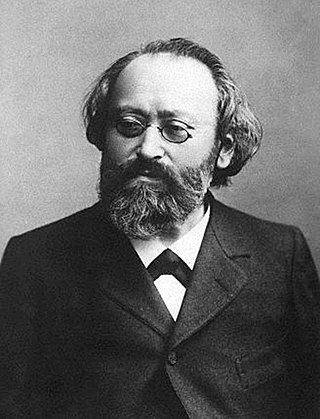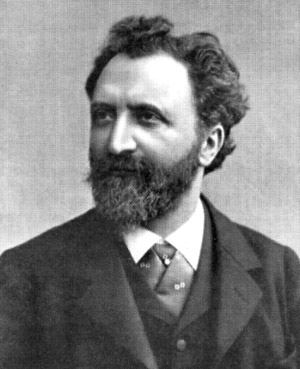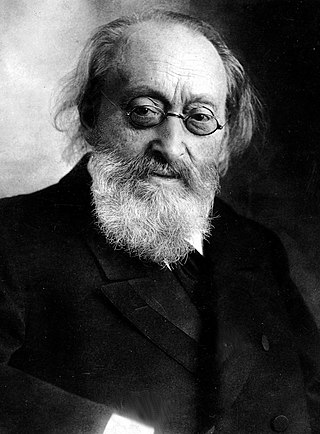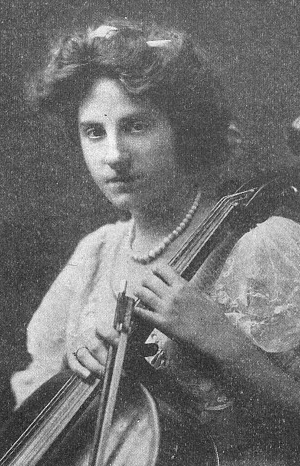
Max Bruch was a German Romantic composer, violinist, teacher, and conductor who wrote more than 200 works, including three violin concertos, the first of which has become a prominent staple of the standard violin repertoire.
Kol Nidre is a Hebrew and Aramaic declaration which is recited in the synagogue before the beginning of the evening service on the night of Yom Kippur. Strictly speaking, it is not a prayer, even though it is commonly spoken of as if it were a prayer. This declaration and its ceremonial accompaniment have been charged with emotional undertones since the medieval period, creating a dramatic introduction to Yom Kippur on what is often dubbed "Kol Nidrei night", with the entire Yom Kippur evening service popularly called Kol Nidrei.
Natalie Clein is a British classical cellist. Her mother is a professional violinist. Her sister is the actress Louisa Clein.

Ferdinand (von) Hiller was a German composer, conductor, pianist, writer and music director.

Friedrich Gernsheim was a German composer, conductor and pianist.

The Scottish Fantasy in E-flat major, Op. 46, is a composition for violin and orchestra by Max Bruch. Completed in 1880, it was dedicated to the virtuoso violinist Pablo de Sarasate.

Max Bruch's Violin Concerto No. 1 in G minor, Op. 26, is one of the most popular violin concertos in solo violin repertoire and, along with the Scottish Fantasy, the composer's most famous work. It has been recorded often.
Kol Nidre is a prayer of Judaism.

Alisa Weilerstein is an American classical cellist. She was named a 2011 MacArthur Fellow.
Jewish music is the music and melodies of the Jewish people. There exist both traditions of religious music, as sung at the synagogue and domestic prayers, and of secular music, such as klezmer. While some elements of Jewish music may originate in biblical times, differences of rhythm and sound can be found among later Jewish communities that have been musically influenced by location. In the nineteenth century, religious reform led to composition of ecclesiastic music in the styles of classical music. At the same period, academics began to treat the topic in the light of ethnomusicology. Edwin Seroussi has written, "What is known as 'Jewish music' today is thus the result of complex historical processes". A number of modern Jewish composers have been aware of and influenced by the different traditions of Jewish music.

Max Bruch's Violin Concerto No. 2 in D minor, Op. 44 was composed during 1877, following a failed attempt in 1874, and dedicated to the great Spanish violinist, Pablo de Sarasate. It was premiered in London by Sarasate, conducted by Bruch, on 4 November 1877.

Max Bruch's Violin Concerto No. 3 in D minor, Op. 58, was composed in 1891 and dedicated to the violinist/composer Joseph Joachim, who had persuaded him to expand a single movement concert piece into a full violin concerto.

The Concerto for Clarinet, Viola, and Orchestra in E minor, Op. 88, is a composition by Max Bruch which was composed in 1911. It premiered on 5 March 1912 in Wilhelmshaven by the piece's dedicatees, violist Willy Hess and the composer's son and clarinet soloist, Max Felix Bruch. The score however was published 23 years after the composer's death, finally being released in 1942.

Rose Sutro and Ottilie Sutro were American sisters who were notable as one of the first recognised duo-piano teams. It has been claimed they were the first such team, but Willi and Louis Thern preceded them by almost 30 years. They were also noted confidence tricksters, repeatedly swindling the German composer Max Bruch by taking advantage of his trusting nature - first, by making and publishing unauthorized changes to his Concerto for Two Pianos and Orchestra in A-flat minor, and second, stealing and absconding with the autograph copy of his Violin Concerto No. 1 in G minor, later selling it in 1949.

Robert Hausmann was a notable 19th-century German cellist who premiered important works by Johannes Brahms and Max Bruch. He was the cellist for the Joachim Quartet and taught at the Berlin Königliche Hochschule für Müsik.
Eda Rothstein Rapoport was a Jewish-American composer and pianist born in the Russian Empire.

Sara Gurowitsch was a Russian Empire-born American cellist and composer.

The String Octet in B♭ major, Op. posth., was composed by Max Bruch for four violins, two violas, cello and double bass. Completed in 1920, the year of his death, it is his last work and would not be published until 1996. The work is also known under the name Concerto for String Orchestra (Octet).









